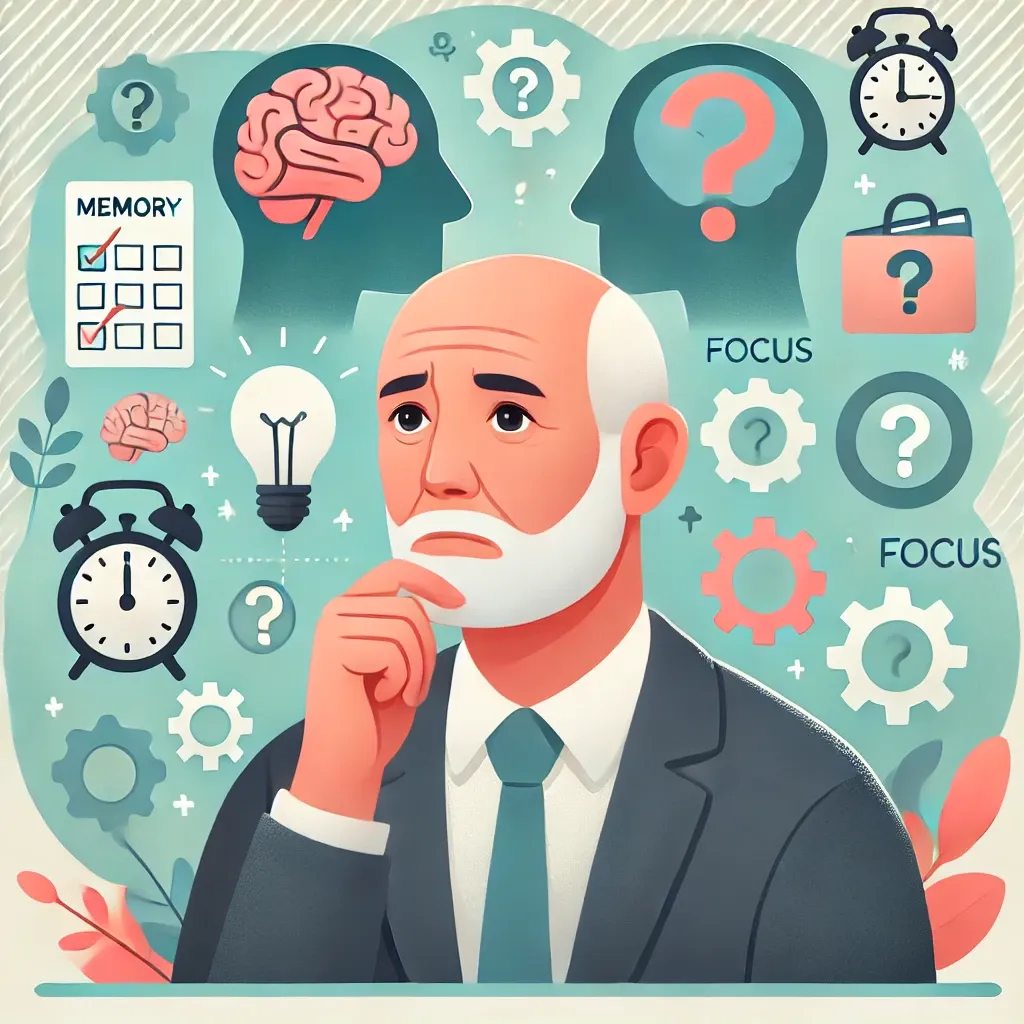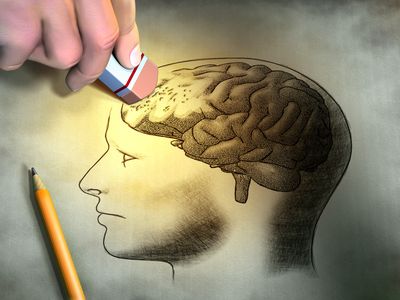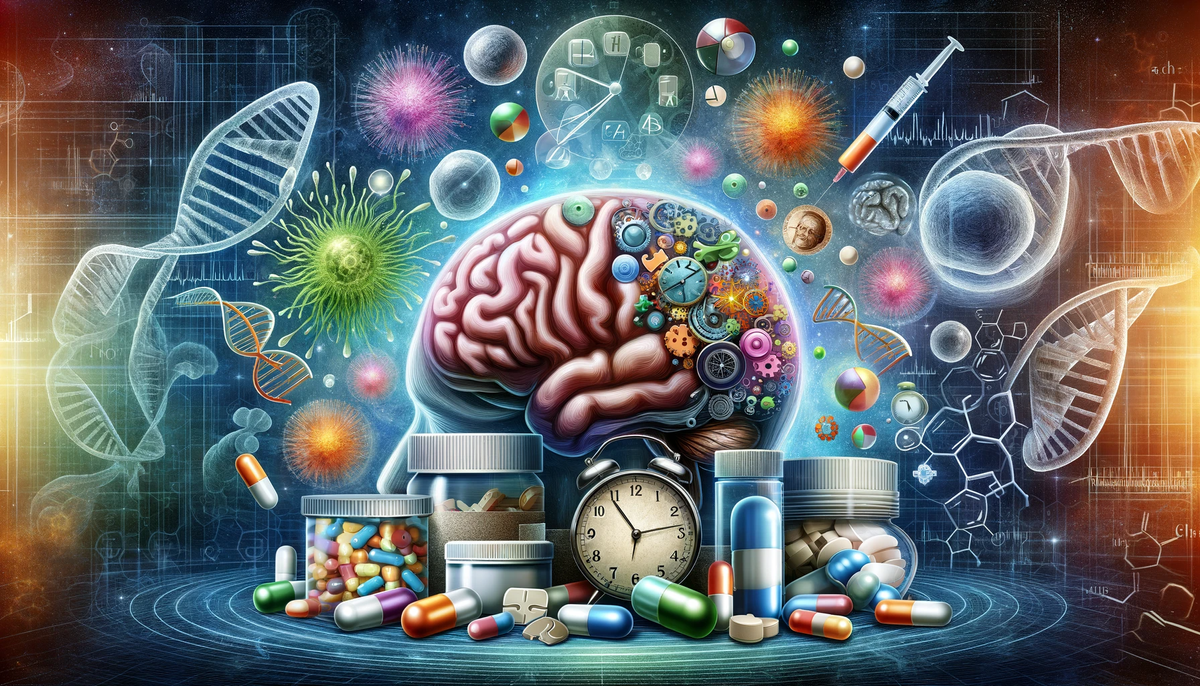Can Emotional Trauma Cause Traumatic Memory Loss?
Emotional trauma can deeply impact the brain, sometimes causing memory loss. Known as dissociative amnesia, it’s a protective response to overwhelming events. Learn how trauma affects memory, signs to watch for, and ways to support healing and recovery.

Introduction to the Effects of Emotional Trauma on Memory Loss
Emotional trauma can lead to a variety of mental health effects. In particular, it can cause severe memory loss and affect how well a person can recall past events. This is known as traumatic memory loss, and it can be a difficult experience for individuals to cope with.
When it comes to traumatic memories, they are often associated with a painful event or experience. It could be an accident that caused physical pain, or an event such as emotional or sexual abuse that has left emotional scars. These types of memories are stored differently than normal memories, and it can be difficult for individuals to remember them accurately when they try to recall them in the future.
Traumatic memories can also be linked to memories of traumatic events. For example, someone who has experienced a car crash might not only have memories of the crash itself, but also of the aftermath – the injuries, the people involved, the car being towed away, etc. All these memories can be extremely difficult to process, and can lead to memory loss.
Furthermore, recent research suggests that traumatic experiences can lead to long-term changes in the brain, and can cause problems with memory and concentration. This can mean that even if someone does try to recall a traumatic memory, they may not be able to remember it accurately or completely.
This video explains the long term brain changes and how it can impact your closest relationships
The Effects of Emotional/Psychological Trauma on Memory Loss
Emotional and psychological trauma can have a profound effect on memory loss. Traumatic memories can be stored in our subconscious, and when we experience a traumatic event it can cause us to forget some of the details that we would otherwise remember. This is known as “dissociative amnesia” or “dissociative fugue” and can be caused by a number of different factors, including physical or emotional pain, fear, and stress. The Diagnostic and Statistical Manual of Mental Disorders (DSM-5-TR) classifies dissociative conditions like dissociative fugue, categorizing specific symptoms and conditions to aid in understanding and recognizing empirical evidence of mental health issues.
When our brains are overwhelmed with an influx of new information it can become difficult to process it all. This can lead to memory lapses and a general feeling of confusion. Our senses can become heightened when we experience trauma, which can make it hard to focus on the details of our surroundings. Our interpretation of events can also be affected, leading to distorted memories.
When we experience trauma, our bodies often produce higher levels of certain hormones, such as cortisol and adrenaline. These hormones can interfere with our ability to store new memories. Additionally, the intense emotions associated with trauma can create a “fight-or-flight” response in our bodies, which can lead to a disruption in our cognitive processes. All of these factors can contribute to difficulty in forming new memories.
The Impact of Specific Types of Trauma on Memory Loss
Trauma can have different effects on memory loss. Some more severe than others. To better understand the impact of trauma on one’s memory, it is important to explore the types of trauma that can be experienced. These may include childhood trauma, post-traumatic stress disorder (PTSD), and shock trauma. Trauma can disrupt normal memory functioning through mechanisms like altered encoding and retrieval.
Childhood Trauma
One type of trauma that can contribute to memory loss is childhood trauma. It is possible for a child to have an adverse experience at such a young age that it has lasting effects. These effects can include memory loss. Research suggests that childhood trauma can not only cause short-term memory problems but can also lead to long-term issues with memory and emotion regulation. Childhood trauma can lead to memory difficulties, including issues with memory encoding and retrieval.
Post-Traumatic Stress Disorder (PTSD)
Posttraumatic stress disorder (PTSD) is a condition that can result from experiencing or witnessing a traumatic event. Those who experience PTSD may undergo extreme bouts of anxiety, depression, and even cognitive impairment. Memory loss is an all too common symptom of posttraumatic stress disorder. Research suggests that those with PTSD tend to have deficits in their short-term memory, which can last well after the traumatic event.
Shock Trauma
Shock trauma can be described as a reaction to a sudden, unexpected event. It can be as minor as stubbing your toe or as serious as being exposed to violence. Shock trauma can lead to memory disruption in the short term. This could include difficulty remembering conversations or even forgetting certain details about an event. In some cases, this shock trauma can become more long-term. Symptoms of dissociative amnesia must not be better explained by other conditions, including traumatic brain injury.

Childhood Trauma and Memory Loss
For many, a childhood can be a happy time – full of learning, playing, and exploring the world around us. However, for some, childhood may involve trauma, leaving them with psychological scars that last a lifetime. Unfortunately, this trauma might have an effect on our memories, leading to memory loss.
Childhood trauma can come in many shapes and forms, from physical, verbal, and sexual abuse, to major life events such as divorce or death of a parent, to witnessing disturbing or traumatic situations. All of these experiences can leave lasting psychological damage, which can then manifest itself in various ways. Addressing both the psychological and physical aspects of trauma can help regain lost memories.
One way that childhood trauma can express itself is through problems with memory. For example, individuals who have experienced childhood trauma may have difficulty remembering important events, people, and places. They may have trouble remembering conversations, or even their own history. They may also have difficulty forming and maintaining new memories.
Childhood trauma can also lead to problems with concentration, difficulty making decisions, and difficulty forming relationships. It can also lead to anxiety and depression, which are both known to interfere with our abilities to remember things.
Ultimately, childhood trauma can have lasting negative effects on our memories and how we process information, making it more difficult to recall information or events than would be the case for someone who hadn’t experienced childhood trauma.
Post-Traumatic Stress Disorder (PTSD)
Post-Traumatic Stress Disorder (PTSD) is a mental health disorder that can result from experiencing or witnessing a traumatic event. Examples of traumatic events include an assault, a natural disaster, a car accident, combat, or even psychological trauma caused by the witnessing of violence.
PTSD can also lead to memory loss. Due to the intensity and severity of PTSD, changes in the hippocampus may cause long-term memory impairments and unpredictable flashbacks, which can be especially difficult if the memories are attached to the experience of trauma. Severe dissociative amnesia can significantly hinder daily functioning and is often linked to traumatic experiences.
Researchers are still engaging with the connection between PTSD and memory loss, however, it is known that people with PTSD are three times more likely to report having difficulty remembering information than those without the disorder. This difficulty can greatly interfere with cognitive functioning and daily life.
The symptoms of PTSD can be emotionally and physically draining, which can lead to issues such as difficulty sleeping, difficulty concentrating, exhaustion, and confusion. As a result, the individual may have difficulty recalling memories and events. The more severe the PTSD, the more likely it is to impact memory.
Shock Trauma and Memory Loss
Shock trauma, or more commonly known as acute trauma, is an event that causes sudden physical or psychological distress. It can include a single incident, such as a car accident or witnessing a violent crime, or a series of incidents, such as domestic abuse or extended military service. Shock trauma can have a profound effect on an individual and it can lead to long-term mental health effects, including memory loss.
When someone undergoes shock trauma, their body and mind may temporarily become numb and they may experience a range of strong emotions and feelings. These reactions are a normal part of the healing process, however, if the trauma is not addressed properly, it can lead to mental health issues, including memory loss. Shock trauma can also impact working memory, affecting the ability to recall and manage information effectively.
Studies have shown that individuals who have experienced shock trauma are at a higher risk of suffering from memory loss than those who have not. They are also more likely to experience various types of memory issues, such as forgetting important dates or events, feeling ‘foggy’, or having difficulty with long-term or short-term memory. Memory loss can impact daily life in many ways, and can make it difficult to form new memories or recall old ones.

Symptoms That Could Indicate Memory Loss as a Result of Trauma
Traumatic events can cause people to experience changes in their memories, including forgetting certain events or having difficulty remembering details. This type of memory loss may be due to psychological trauma, such as childhood trauma or post-traumatic stress disorder (PTSD).
Different types of memory loss can present different symptoms. Common symptoms associated with memory loss due to trauma include:
- Trouble concentrating on tasks that require remembering information
- Difficulty retrieving or recollecting memories of events
- Inability to recall memories from the past
- Disorientation and confusion in situations that should be familiar
- Decreased ability to learn new information or remember new facts
- Physical symptoms such as headaches and dizziness
- Reduced ability to recall conversations or instructions
It is important to note that everyone experiences memory loss differently, so not everyone will have the same symptoms. Additionally, if you are experiencing any of the above symptoms, it does not necessarily mean that you have memory loss due to trauma. It is always best to speak with a doctor if you are concerned about your memory.
Prevention Strategies to Reduce the Risk of Memory Loss Due to Trauma
It is possible to reduce the risk of memory loss due to trauma. While it is impossible to completely eliminate the risk, there are some steps you can take to minimize it.
The first and most important step is to address the underlying cause of your emotional/psychological trauma. This may involve seeking professional help from a qualified therapist or counselor. Additionally, avoiding or reducing stressful situations and environments can also help reduce the risk of memory loss due to trauma.
It is also beneficial to maintain a healthy lifestyle. Eating a balanced diet, getting regular physical activity, and getting adequate sleep can all help support mental health and reduce your risk of memory loss due to trauma.
Engaging in activities that promote relaxation and stress relief can also be helpful. Taking part in hobbies, engaging in creative activities, meditation, yoga, or other forms of exercise can help reduce the symptoms of emotional trauma. Additionally, engaging in social activities can help reduce feelings of isolation and loneliness.
Finally, it is important to find ways to cope with difficult emotions associated with trauma. Finding someone to talk to, journaling, practicing mindfulness, and engaging in self-care can all help alleviate symptoms associated with traumatic memories and potentially reduce the risk of memory loss.
Potential Treatment Options for Memory Loss Due to Trauma
When it comes to addressing memory loss caused by emotional trauma, there are a few potential treatment options available. The most important step is for an individual to seek professional help from a trained therapist or mental health care provider to diagnose and treat the underlying source of the memory loss. Therapists can provide guidance and support to help individuals process their emotions, work through difficult memories, and develop coping techniques. Depending on the type of trauma experienced and the severity of the memory loss, other treatment options may also be indicated.
Individual Therapy
Individual therapy involves working with a mental health professional, such as a psychologist or psychiatrist, in a one-on-one setting. This type of therapy can help individuals process their trauma, explore its impact, and develop healthier coping mechanisms. It is important that the therapist chosen is experienced in treating trauma-related issues.
Group Therapy
Group therapy offers the opportunity to connect with other people who have experienced similar circumstances and to discuss experiences and feelings in a safe, supportive environment. Group therapy can be especially helpful for individuals struggling with memory loss due to trauma because it can provide a sense of community and connection.

Medication
In some cases, medication may be prescribed to help manage symptoms associated with memory loss due to emotional trauma. An individual's mental health care provider will determine if this is an appropriate treatment option. Examples of medications that may be used to help reduce symptoms of traumatic memory loss include antidepressants, anti-anxiety medications, and mood stabilizers.
Alternative Treatments
In addition to traditional treatments, there are a variety of alternative treatments that may help address the symptoms of traumatic memory loss. Examples include acupuncture, yoga, massage therapy, and meditation. These treatments focus on calming the body and mind and can help reduce stress levels, which may be beneficial for managing traumatic memories.
It is important for individuals to remember that healing from trauma takes time and requires patience and self-care. It may be helpful to speak with a mental health professional to develop a treatment plan that works best for the individual.
Coping Strategies and Supportive Resources for People Struggling with Memory Loss Due to Trauma
For many people, the process of healing from traumatic memories and dealing with memory loss can feel overwhelming. However, there are strategies and resources available to help you manage your trauma-related memory loss and develop coping skills. Here are some helpful suggestions.
Talk to Others Who Have Experienced Trauma
Talking to other people who have gone through similar experiences can be helpful. It can provide a sense of solidarity and shared understanding. Look for support groups in your area or reach out online to connect with people in a safe space.
Look for Professional Resources
Consider seeking out professional resources such as therapy, counseling, or psychiatric services. A therapist can help you find ways to cope with the emotional distress that might be associated with your memories and memory loss.
Educate Yourself on Traumatic Memory Loss
It is important to educate yourself on traumatic memory loss and understand the different possible causes. This will give you a better understanding of your memories and how to cope with them. Consider reading articles or books on the subject or watching videos online.
Practice Mindfulness and Relaxation Techniques
Try to practice mindfulness and relaxation techniques such as deep breathing, yoga, or guided meditation. These activities can help you relax and manage stress levels. They also allow you to focus on the present moment rather than on negative memories or thinking about the future.
Focus on What You Can Control
When it comes to coping with memory loss due to trauma, it can be beneficial to focus on what you can control, rather than worrying about things that you cannot change. Make a list of the things that you can control in your life and focus on those aspects.
Remind Yourself of What Is Positive
Although dealing with traumatic memories and memory loss can be challenging, it is important to remind yourself of the positive aspects of your life. Focus on the aspects of yourself that make you unique or activities that bring you joy.
Reach Out for Help
If you are struggling with memory loss due to trauma, do not hesitate to reach out for help. Consider talking to a friend or family member about what you are going through, as well as seeking out professional resources like therapy. Remember that you are not alone and that help is available.
No matter what you are going through, it is important to remember that healing takes time. It can be a long journey, but with the right coping strategies and supportive resources, you can manage your traumatic memories and memory loss.
It is clear that emotional and psychological trauma can have a significant impact on memory, leading to memory loss and other related issues. However, it is important to remember that not all traumatic experiences will result in memory loss, and if it does occur, it is possible to cope with the effects and find help and support. While there is no one size fits all approach to coping with the effects of trauma on memory, understanding the causes and potential treatment options can help people to make informed decisions about their wellbeing.
Ultimately, it is important to remember that no matter what your experience has been, you are never alone. If you or someone you know is struggling with memory loss due to trauma, help is available. Reach out to local mental health services for advice and support, and to explore potential treatments that could help improve your memory and overall wellbeing.
Introduction: What are Traumatic Memories and How Does It Relate to Memory Loss?
Emotional trauma can be devastating. When we experience something traumatic or frightening, it can have long-term effects on our mental and physical health. One of these effects is memory loss. Memory loss can occur in the immediate aftermath of a traumatic event or in the years following. In this guide, we will explore how emotional trauma can cause memory loss and what we can do to prevent it.
Memory loss is a general term that can refer to the difficulty in recalling facts, events, or experiences you have had in the past. It is an umbrella term that encompasses a variety of different types of memory problems such as forgetting where you put something, forgetting people's names, and having difficulty remembering past events.
When emotional trauma is experienced, it can cause changes to the brain that impact our memory. Research has shown that traumatic memories are stored differently than normal memories. These “traumatic memories” are more likely to be stored in the lower brain network, rather than the higher networks which are responsible for cognitive thinking and complex decision making. This difference in storage location makes it more difficult for us to recall or access these memories when needed.
In addition to differences in memory storage, traumatic memories can cause changes in other areas of the brain. For example, research has shown that emotional trauma can lead to decreased activity in the hippocampus, which is responsible for forming and retrieving memories. This decreased activity may explain why people who have experienced emotional trauma have difficulty remembering certain things.
It is important to understand that memory loss due to trauma is a very real phenomenon and is something that should not be taken lightly. The next section will explore the various ways that emotional/psychological trauma can cause memory loss.
You might also like this article:















